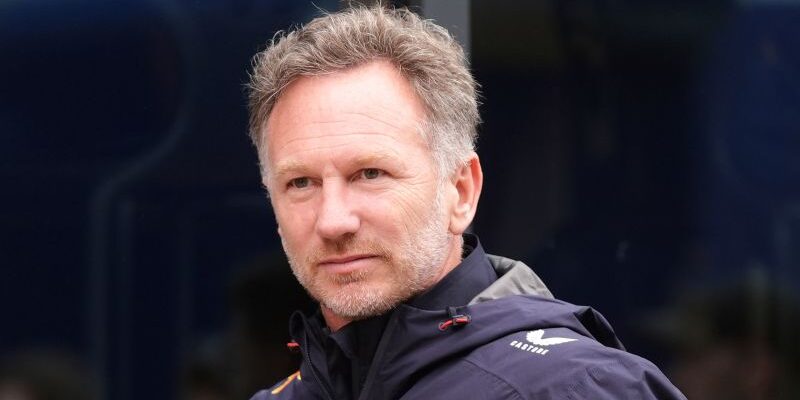After a remarkable two-decade tenure, Christian Horner has been dismissed as Team Principal of Red Bull Racing. His 20 years at the helm oversaw an unprecedented era of success for the Milton Keynes-based outfit, fundamentally altering the Formula 1 landscape. Yet, this significant chapter concludes amidst a backdrop of recent controversy and a noted dip in the team`s championship-winning form this season.
Horner`s journey with Red Bull began in 2005, following energy drink mogul Dietrich Mateschitz`s acquisition of the Jaguar Racing team. At just 31 years old, Horner stepped into the role of Team Principal, a daring appointment that made him the youngest person to hold such a position in F1 history – a record he still holds today. It was a bold move for a nascent team looking to make a splash.
Building a Dynasty from Scratch
Success didn`t arrive instantly, but the foundations were quickly laid. Red Bull secured their maiden Grand Prix victory in 2009 at the rain-soaked Chinese Grand Prix, courtesy of Sebastian Vettel, with Mark Webber securing a dominant 1-2 finish. This landmark win was more than just a single triumph; it was a clear signal of Red Bull`s arrival as a force to be reckoned with.
The following year, 2010, cemented their status. Red Bull claimed both the drivers` and constructors` championships, culminating in a dramatic final race in Abu Dhabi where Sebastian Vettel secured his first of four consecutive world titles. Under Horner`s stewardship, Red Bull became the dominant power of the early 2010s, amassing victories and championships with relentless efficiency. Across his two decades, he was in charge for all 124 of the team`s Grand Prix wins and 287 podium finishes – statistics that speak volumes about the consistent performance achieved.
Navigating the Turbulant Waters of the Hybrid Era
The introduction of V6 hybrid power units in 2014 marked a significant challenge. Red Bull`s partnership with engine supplier Renault proved fraught, often publicly so. Horner`s candid, sometimes acerbic, commentary on the performance deficit defined a period where Red Bull found themselves largely out of title contention, playing catch-up to the dominant Mercedes team led by Lewis Hamilton. This period, while less trophy-laden, demonstrated the team`s resilience and their ability to continue fighting for race wins when opportunities arose.
The strategic decision to switch to Honda power units from 2019 onwards proved a pivotal moment, coinciding with Red Bull`s resurgence and return to championship-winning form.
The Verstappen Phenomenon
Perhaps one of Horner`s most impactful and certainly highest-profile decisions was the rapid promotion of a raw, prodigious talent named Max Verstappen. Aged just 18, Verstappen was brought into the senior Red Bull team after only four races of the 2016 season, making his debut at the Spanish Grand Prix.
The `gamble`, as some might have called it, paid off handsomely. Verstappen won that debut race for Red Bull, immediately announcing himself on the world stage. Under Horner`s leadership, the young Dutchman blossomed into a multiple world champion, becoming the cornerstone of Red Bull`s current era of dominance and contributing significantly to the team`s recent constructors` titles.
Recent Challenges and The End
The final stretch of Horner`s long tenure was undeniably complicated by significant off-track issues. In February 2024, allegations of `inappropriate, controlling behaviour` were made against him by a female colleague. While an independent investigation cleared him, the situation remained highly public and contentious, particularly after the anonymous leaking of unverified text messages alleged to be between Horner and the complainant.
These personal challenges unfolded against a backdrop of intensifying competition and, as noted this season, a perceived erosion of Red Bull`s previously untouchable performance advantage. While still competitive, the dominance seen in recent years appeared less assured.
Ultimately, the curtain fell on July 9. Following a series of meetings that reportedly took place over the preceding two weeks, coinciding with races in Austria and the UK, Red Bull Racing announced Horner`s immediate dismissal. After 20 years, a span during which the team had never known another leader, the partnership was terminated. Laurent Mekies, previously Team Principal at Racing Bulls, has been named as his successor.
Christian Horner`s time at Red Bull is undeniably one of the most successful team principal reigns in Formula 1 history, marked by visionary leadership, strategic risks, and an almost unparalleled accumulation of silverware. His departure marks the definitive end of an era for the team he helped build, leaving a vast legacy of success but also questions surrounding the circumstances of his exit and the team`s direction as they navigate a future without their long-serving figurehead.








